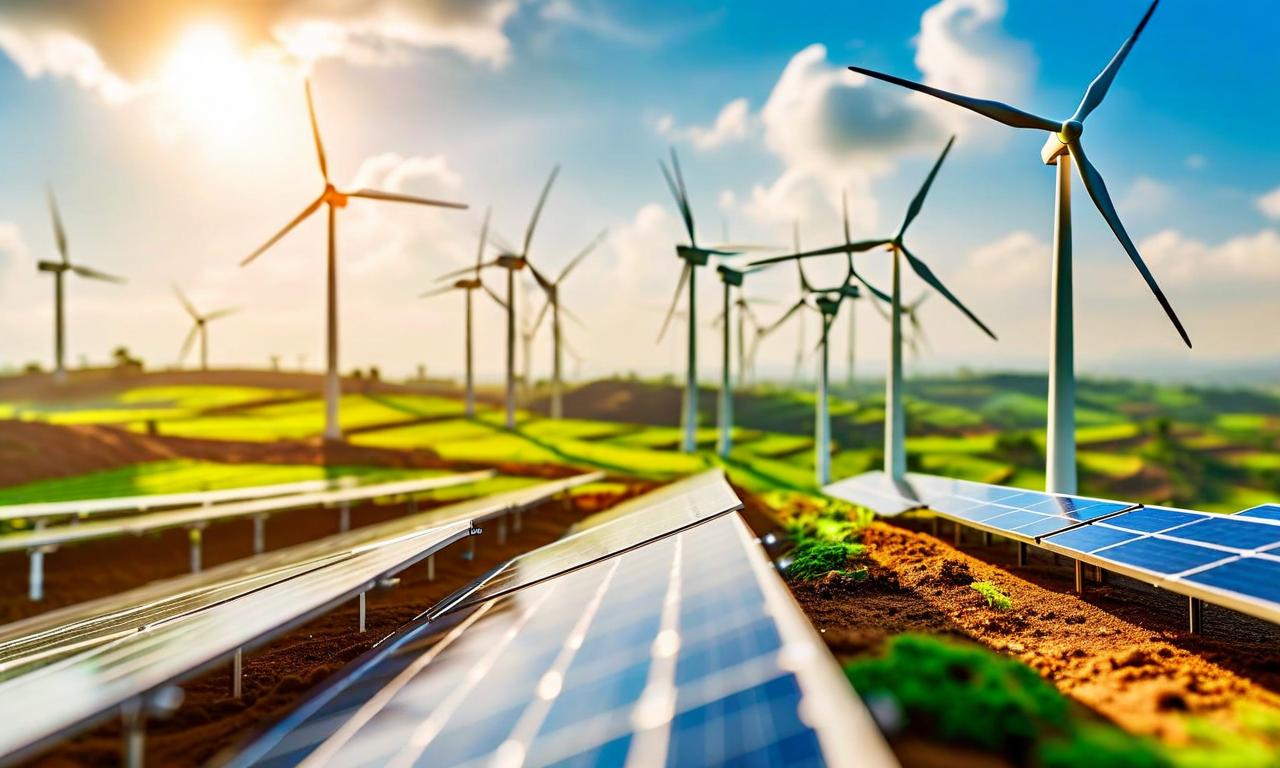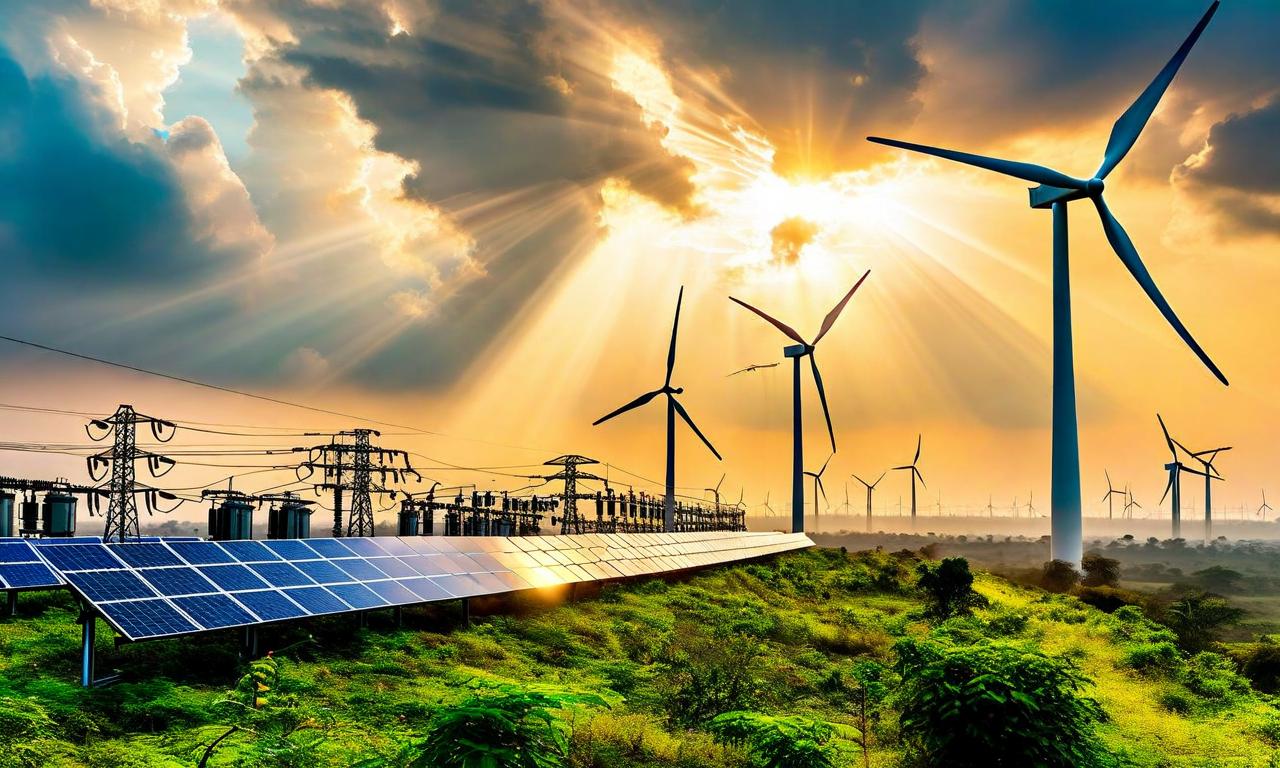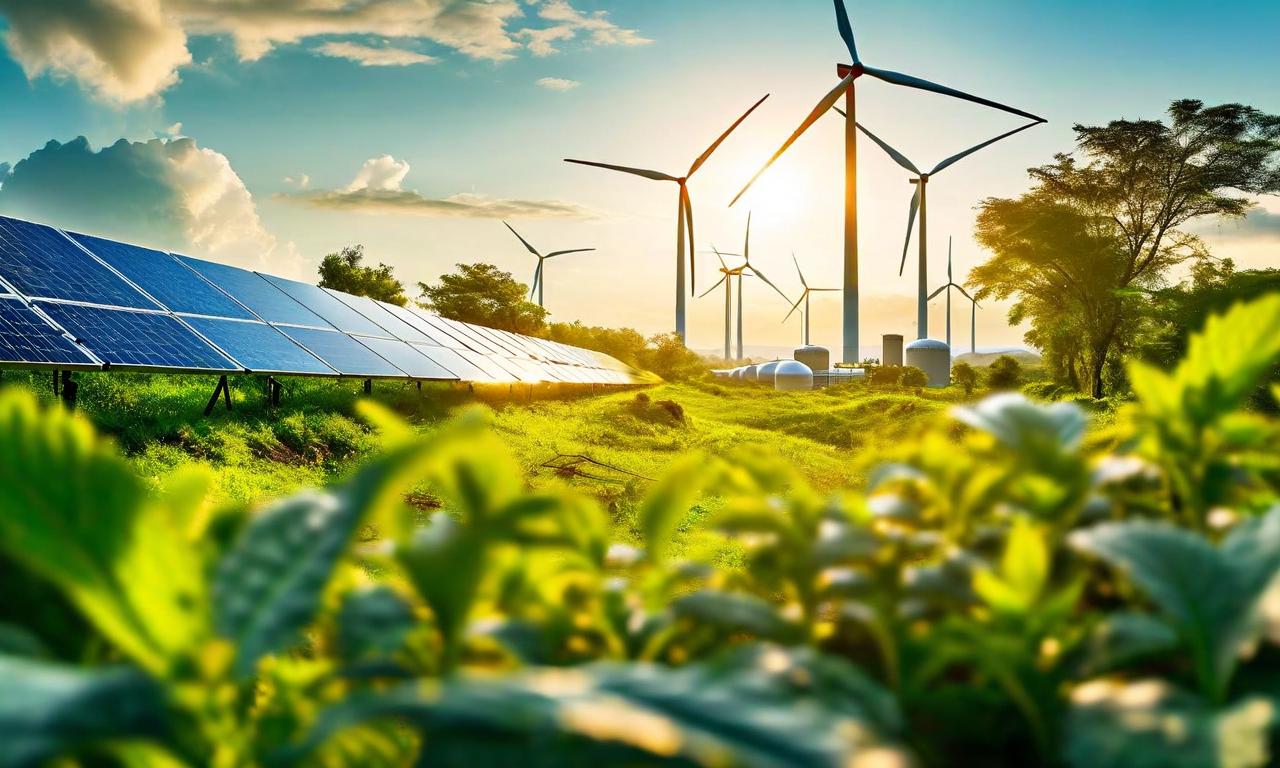India Takes Action on Delayed Renewable Energy Agreements
India's Renewable Energy Minister has initiated collaboration with various states to address delayed power purchase agreements (PPAs) in the renewable energy sector. This move aims to streamline the renewable energy market, potentially accelerating project implementations, increasing investor confidence, and boosting India's renewable energy capacity. The resolution of PPA-related issues could lead to faster deployment of renewable energy projects and progress towards India's climate commitments.

*this image is generated using AI for illustrative purposes only.
India's renewable energy sector is poised for a potential breakthrough as the country's Renewable Energy Minister takes proactive steps to address a longstanding issue in the industry. The minister has initiated collaboration with various states to tackle the problem of delayed power purchase agreements (PPAs) in the renewable energy sector, a move that could have significant implications for the country's green energy goals.
Collaborative Approach to Resolve PPA Delays
The Renewable Energy Minister's decision to work directly with state governments marks a crucial step towards streamlining the renewable energy market in India. Power purchase agreements are essential contracts between electricity generators and buyers, typically state-owned distribution companies. These agreements are fundamental to the renewable energy ecosystem, providing certainty for investors and developers.
Impact of Delayed Agreements
Delays in finalizing and executing PPAs have been a persistent challenge in India's renewable energy sector. These holdups can:
- Create uncertainty for project developers
- Potentially deter investments in the sector
- Slow down the pace of renewable energy adoption
- Affect India's ambitious clean energy targets
Potential Outcomes
By addressing this issue head-on, the minister's initiative could lead to several positive outcomes:
- Accelerated project implementations
- Increased investor confidence in the renewable energy sector
- Faster growth in India's renewable energy capacity
- Better alignment between central and state-level renewable energy policies
Implications for India's Energy Transition
This collaborative effort between the central government and states is particularly significant in the context of India's broader energy transition goals. As one of the world's largest energy consumers, India's commitment to renewable energy is crucial for global climate action.
The resolution of PPA-related issues could pave the way for:
- More rapid deployment of solar, wind, and other renewable energy projects
- Enhanced energy security through diversification of power sources
- Progress towards India's international climate commitments
As this initiative unfolds, stakeholders in the renewable energy sector will be watching closely to see how effectively the minister and state governments can resolve the PPA delays and what impact this will have on India's renewable energy landscape.































